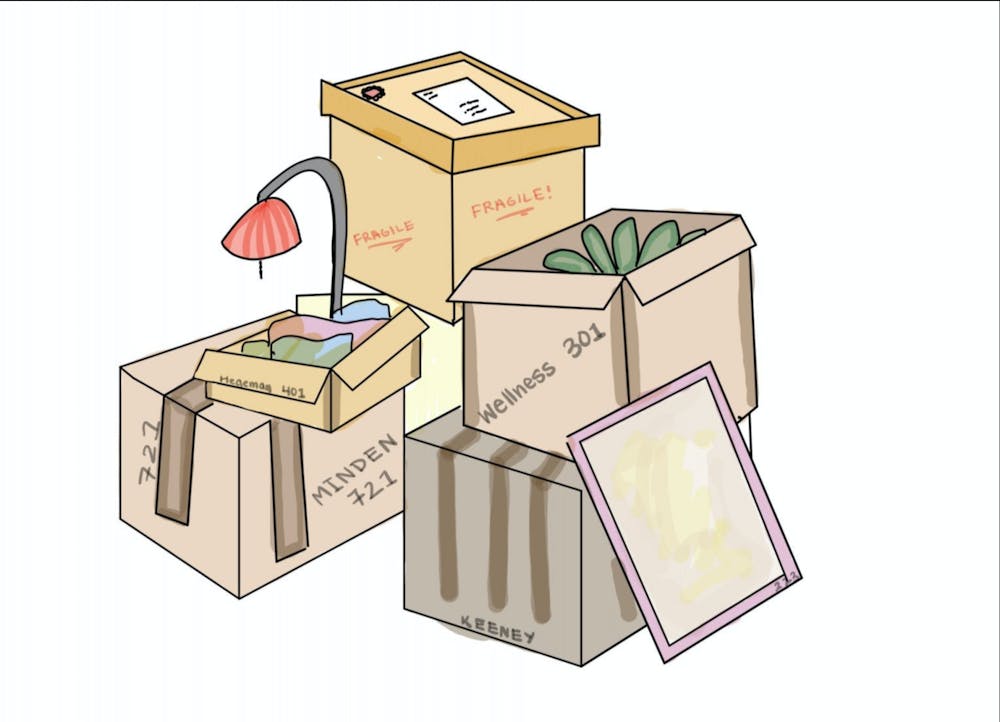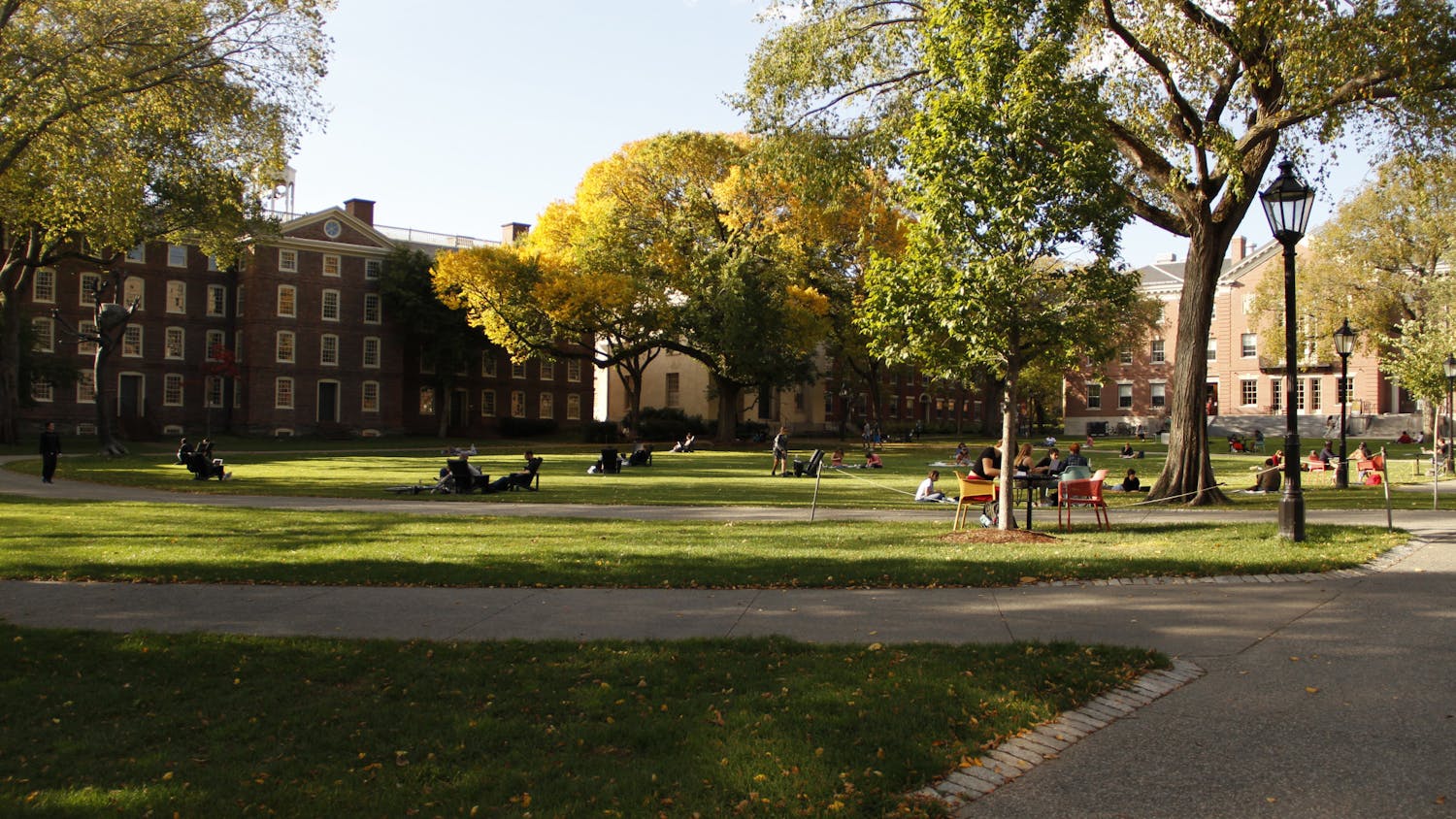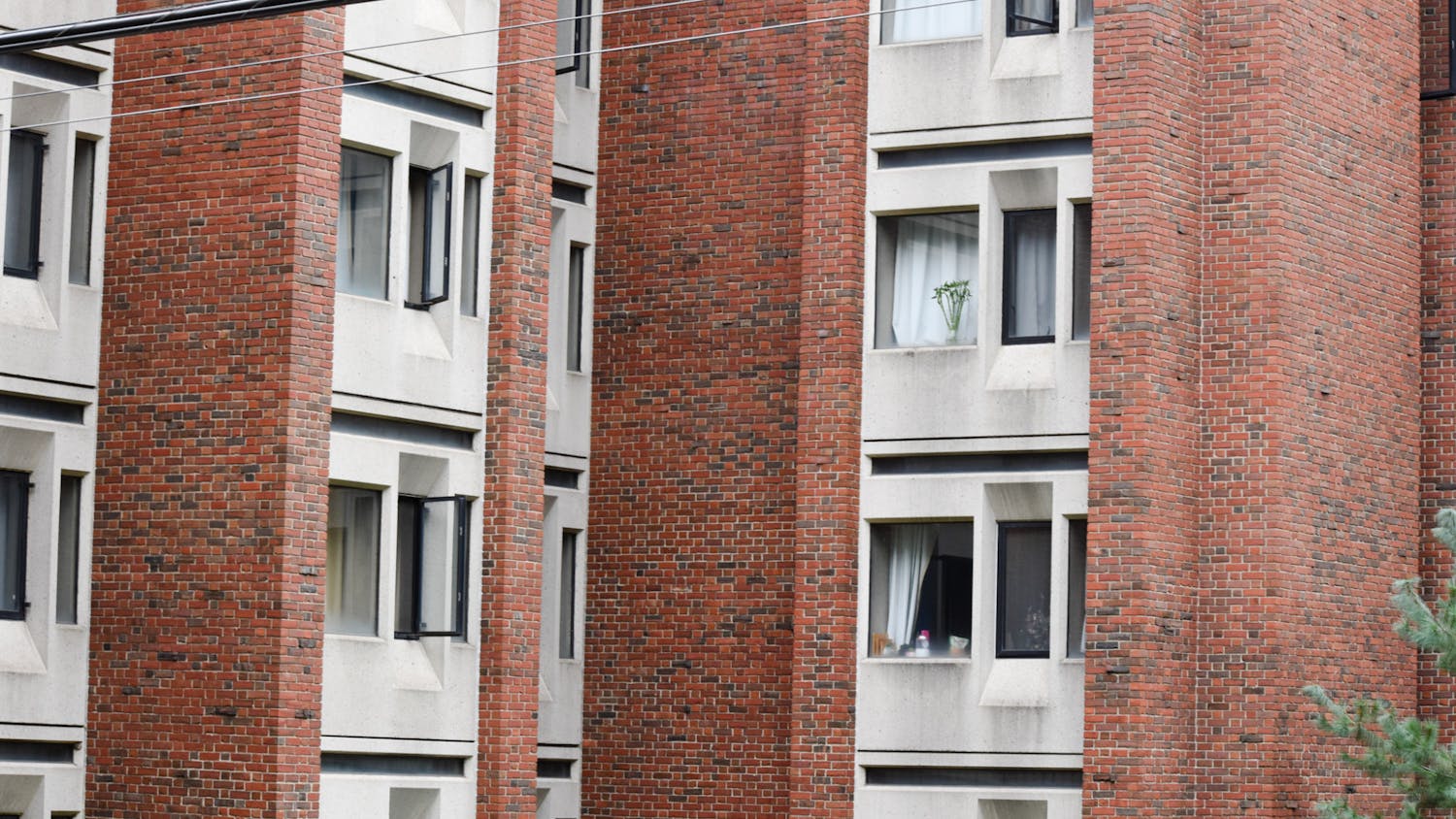Several students received incomplete or damaged deliveries of the items they stored with Campus Storage over the summer, according to students.
Five students told The Herald that, when their belongings were delivered at the start of the academic year, they were missing boxes, received items belonging to other students and had items with water damage or mold.
Campus Storage is a privately-run off-campus storage option for students, offering storage options with monthly pricing for students to use over the summer or during a semester abroad, according to the company’s website. When a student signs up for storage, the company ships packing kits to the students and then sends a moving team to pick up the items.
For the duration of the storage, the company places students’ items in a “secure and climate controlled storage facility,” according to its website. When students return to campus, the items are delivered to their dorm or house.
Nima Kazerouni, operations manager for Campus Storage, wrote in an email to The Herald that Campus Storage’s North Providence warehouses were hit by a series of flash floods, which caused the water damage to the items of some students.
“We apologize sincerely for any inconveniences that may have been caused,” she wrote. “Please understand we tried to do our best to put the safety of our customers' property as priority concern during this Force Majeure event.”
Suzie Zhang ’24 and Zane Darden ’24 both picked Campus Storage to store their belongings over the summer because they started looking into their options relatively late and found that other companies were already booked.
Zhang had 11 packages stored, but only nine were delivered back to her, she said. Darden had seven stored, but only six were delivered back to him, he explained.
“I talked to the person delivering, but obviously he doesn’t have much authority,” Zhang said. “He had no idea where they went.”
The delivery worker advised Zhang to email Campus Storage to locate her missing boxes, she said. When Zhang emailed Sept. 2, the company responded “very quickly” and explained that they would search for her missing items.
In the email chain, reviewed by The Herald, Kazerouni asked Zhang to provide an itemized list of items inside her missing duffel bag, saying that the identification tag likely fell off. She responded with some of the items inside the bags.
But as of Oct. 18, Zhang had not received communication from Campus Storage with a status update on her missing boxes.
When Zhang opened the nine boxes delivered to her dorm, she found that one of her items, a bag full of clothes, was completely soaked with what she assumed was rainwater, she explained.
“When I was choosing storage companies, it seemed like this company had a solid reputation,” Zhang said. “Because of my current experience, I don't think I'm going to use it in the future.”
When Darden noticed his missing box, he spoke to one of the delivery workers who told him that that occasionally happens and that the box may still be in the warehouse, Darden said. The worker explained to him that if the box was found, the company would deliver it to him, Darden added.
Darden also noticed that one box of items was not in its original packaging. Darden was told by those delivering his items that, if the box was damaged, the company placed items in a new box, he said.
The next day, Darden received a call from the company saying that his missing box had been located. The box was delivered to Darden’s room later that day, he said. “It seems very informal and not super official.”
Haley Damon ’24 said her experience with Campus Storage was “stressful and frustrating.”
Her items were in new boxes with notes saying that they had been moved due to liquid exposure. “They had taken everything out of the box that I carefully packed and just thrown it into a new box,” she said. “There was mold all over my stuff … it was just really sad.”
“The whole thing smelled like mildew,” she added. “It was disgusting.”
“I started looking closer and ended up counting my stuff,” Damon said. “There were a few boxes that were missing, and they didn't give me a list of the things that they threw out.”
Damon reached out to Campus Storage to ask about her damaged items. In an email reviewed by The Herald, Kazerouni explained to Damon that there had been a flood in the warehouse that affected most of the first floor, which forced the company to discard some students’ items.
“Because of the swift intervention, we are grateful to say that 90% of the contents affected by the flood were indeed saved,” Kazerouni wrote in the email. “Some items, however, were not salvageable and had to be discarded.”
Damon also said that Campus Storage denied the possibility that her belongings had mold on them in the email, which was reviewed by The Herald.
“Your items may be slightly musty, but we personally checked every box and laundered items that were soaking wet,” Kazerouni wrote in the email to Damon. “Please also note that we intervened soon enough before any mold actually set in. That being said, we will absolutely pay for your clothes to be professionally laundered again in which any mildew smell will surely be removed.”
“I sent them back pictures of what was clearly mold,” Damon said.
In the company’s email response to Damon’s photos, reviewed by The Herald, Kazerouni wrote that “there is not one article of clothing there. These are photos of four totes bags that have very little value.”
On Sept. 20, Damon had yet to receive more information, so she followed up with Campus Storage over email. In an email reviewed by The Herald, Kazerouni apologized for the delay, explained the company was “still trying to acquire staff to thoroughly search the facility” and asked Damon to fill out a claim form for the missing items.
Damon filled out and returned the claim form to Campus Storage Sept. 25. The company responded to her form Sept. 26 over email, which was reviewed by The Herald, and told her they needed original receipts for all the items she listed.
As of Oct. 20, Damon has not replied to Campus Storage’s email. “It’s almost impossible to find receipts for coats I bought years ago and was already wearing,” she said.
“I'm also first-generation, low-income,” Damon added. “It was a really big deal for me that all this stuff was gone.” Damon has been in contact with Student Support Services.
According to Katie Boin, dean of Student Support Services, Student Support Services is unable to share information about their interactions with specific students and can not comment on incidents with Campus Storage.
Qile Jiang ’24 also had a negative experience with Campus Storage. “This company was very helpful in moving my boxes from my room to their truck, and the delivery was on time,” he wrote in an email to The Herald. But when his belongings were delivered he realized a box of his belongings was damaged and another had missing items, he added.
Jiang received the same email response as Damon, reviewed by The Herald, from Kazerouni, after he took pictures of his damaged items and submitted them via email.
“They responded with a long paragraph explaining the unprecedented rain on Aug. 23, even attaching a link to a news report on the flooding, and how their managers tried to mitigate the effect,” he wrote. “They attached a form for me to fill in and potentially get compensation.”
Jiang ultimately decided it wasn’t worth the hassle to pursue compensation. “I'm actually not in communication with them anymore,” he wrote. “I didn't lose much and didn't want to spend time working on the rather complicated form.”
Meanwhile, Sydney Butler ’25 is still waiting on compensation. Her experience with Campus Storage was “a long and confusing story,” she said.
Butler’s packages were not delivered to her during her selected time slot. When she contacted Campus Storage over the phone, she was informed that her packages could not be delivered that day, which she said forced her to rearrange her schedule so that she could receive them the next day. She also said that Campus Storage informed her that they had moved around some of her belongings because liquid had spilled in one of her boxes.
When Butler’s packages came, she did not find any evidence of spillage, but she was missing several of her belongings and instead received boxes belonging to someone else. It took a week for her to get the rest of her things back from Campus Storage, she said.
One of the delivery workers, who she said was “very nice,” accidentally dropped one of her belongings in a puddle of water while delivering it to her dorm. She was instructed to file a form asking for compensation, but as of Oct. 19, she has not received any information about whether she will receive compensation.
“To protect the property of others, Campus Storage secured all resources and worked around the clock to mitigate any potential threats from the flood,” Kazerouni wrote. This included repacking some boxes and resulted in some scheduling issues and incomplete deliveries, which “were later accommodated for,” she added.
“In a few very rare instances, the water infiltration resulted in the disposal of certain non-salvageable items, such as pillows, bedding and some paper-based items,” Kazerouni continued.
Kazerouni added that “the flood was a natural disaster that was out of our control and resulted in a few scenarios that are out of the scope of our normal business practices.”
Campus Storage declined to comment on specific student allegations.
Attorney Peter Cerilli ’78, who provides legal advice to Brown undergraduate, graduate and medical students, said he has received several calls from students who have suffered losses or damages to their property stored with Campus Storage.
According to Cerilli, “Campus Storage or any storage facility can still be held liable for negligent failure to protect the property.”
But Cerilli said that if students cannot resolve their own private dealings with the company, which he said can be difficult with large companies, students would need to bring their claim to a small claims court. “That’s a hassle, so you have to weigh that against what the value of the property was,” he added.
Cerilli offered some advice to any students planning on storing their items over the summer. “Photograph and document exactly what you're storing, and you can use those photographs to assign a value to it,” he said. “The problem that a lot of students are having is they don't really have evidence of what was stored.”
“Usually nothing happens,” he added, “but when something happens, having documentation just makes solving the problem so much easier.”





